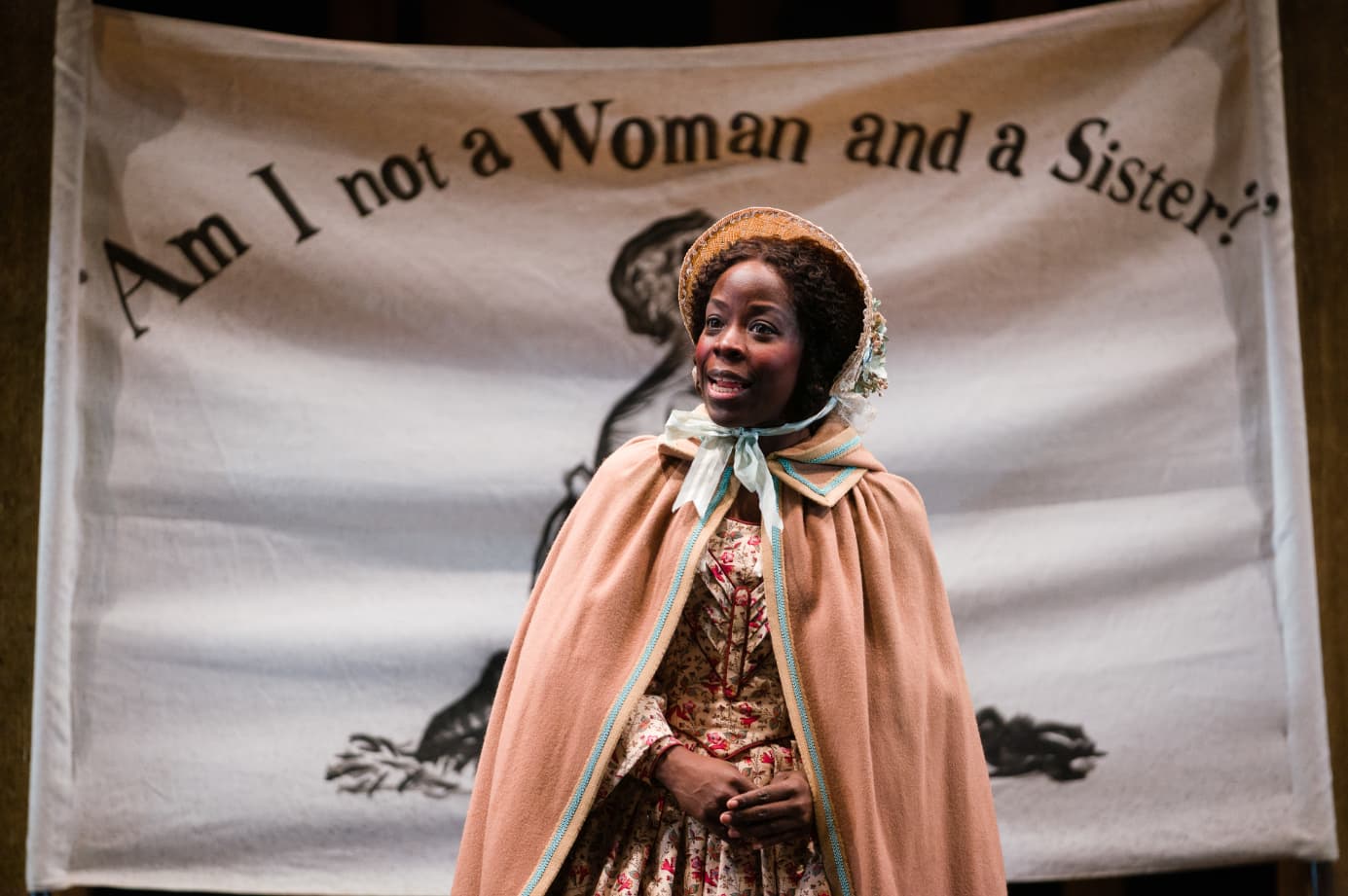When Katherine Pearce’s Horatia Poskitt is beaten up by a policeman at the close of The Whip’s first half, I confess my attention had lulled a tad. But for its slightly dryer moments, Juliet Gilkes Romero’s play – as directed by Kimberley Sykes – boasts memorable lines and fitting symbolism, whilst exploring the so-called 1834 freeing of 800,000 black people from British colonial slavery. The thrashing of Horatia (employed in the home of chief whip Alexander Boyd) comes following her calls in Hyde Park for the rights of workers and women. It is apt her speech is given from atop a soapbox, a physical representation of manual labour and working-class pursuits; it symbolises the fact she uses her own working-class background to inform what she tells the crowd. While the actor could have more fun with the character’s lighter, more humorous moments, her performance in the park alerted me, her cries following truncheon blows harrowing. Pearce also displays good chemistry with Debbie Korley, in the duo’s endearing portrayal of the blossoming relationship between the house cook and Mercy Pryce (based on Mary Prince, whose memoir, The History of Mary Prince, a West Indian Slave, was used in the campaign for abolition).
We learn that one of Poskitt’s children was killed in a cotton mill. In the show’s early stages we watch the conditions of such places debated in parliament, with Boyd (Richard Clothier) then praised by the press and colleagues for his eloquent and impassioned damnation of them. His efforts in this area are abandoned though, to make way for the Abolition Bill, the deliverance of which he’s told could lead to the role of home secretary. A table used throughout the three-hour offering, is repeatedly lowered onto the stage, thus hanging high at points and representing the idea of under-the-table transactions being made in this bid to liberate slaves. We also see cast members in rags setting the stage, denoting the labour slaves are subjected to, and the production’s musicians donning the same attire – perhaps a symbol of slaves marching to the drum of their wealthy owners.
This parliamentary position is offered to Boyd by the current home secretary Lord Maybourne, played by David Birrell, for me the strongest and most consistent performer. His character’s pushing for the chief whip to take control of the Abolition Act derives from the fact the home secretary deals in slaves whereas Boyd deals in soap. With this comes one of the script’s great lines: “My hands are tied, yours are clean.” If they even are to start with, they do not remain so, for Boyd goes on to use blackmail for political gain, the darker sides of his personality believably portrayed by Clothier. At The Whip’s end Maybourne is also heard hoping that in 20 years’ time, no one will recall the bailout that went with the Abolition Bill; whereby the government compensated slave owners, borrowing money that was only paid off (partly by the taxpayer) in 2015. This RSC offering supplies a generally intriguing reminder of it 200 years on.
The Whip is at the Swan Theatre, Stratford-upon-Avon until 21 March.












